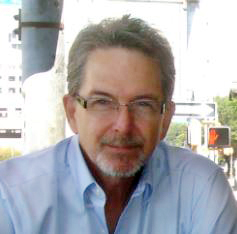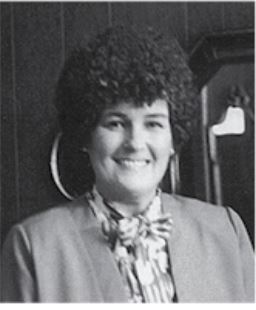Interviewing the Interviewer
An e-talk with Carol Smallwood
by Mike Foldes
Managing Editor
Mike Foldes: Carol, please tell us a bit about your background and how you came to writing.
Carol Smallwood: My first book came from teachers asking where to get materials and it was so much fun I continued with that type of nonfiction. I still have the habit of brevity necessitated when having to take so many notes as a history student and going on to get a Masters Degree. My notes for my Masters in librarianship too are very weighty as well as those of my personal reading. Words became like money: you save when you use less. Come to think of it—that process to capture the essence, the most important, prepared me to become a poet later on. Yes, writing helps you think! After I retired, I returned to college to audit creative writing classes and probably have enough for another Masters.
MF: Could you please elaborate on the term “Library Science,” and your history as a librarian?
CS: My experience includes academic, special, public, and school libraries as a librarian and consultant and I’ve often wondered about the term as it really isn’t what we call science; it is better coined Library and Information Science now. It still means libraries collect, preserve, organize books and other materials. “The Place of the Cure of the Soul” is said have been written above the shelves of the magnificent library of Alexandria, Egypt, the center of scholarship from the 3rd century BC until it all burned in 30 BC. I’ve always considered libraries to preserve the best of what humans have to offer.
We live in times that no matter what profession, it is touched by the Internet and information technology. Libraries are quickly adapting: one of my anthologies (I’ve done about 5 dozen) is on how libraries can stay important:
One of my books for the American Library Association is: Librarians as Community Partners: An Outreach Handbook.
MF: Do you believe that young people today are getting the educations they need to function at a high level in a rapidly changing world?
CS: Education no matter the grade level should first help people think critically: “The object of education is to preparing the young to educate themselves throughout their lives.” Robert Maynard Hutchins. Today when changes in careers are common, this is even more vital and needs to be seriously addressed.
MF: What has technology done to reduce or amplify later generations’ ability to think critically?
CS: Ah, you use the words I just came up with! So much information is freely available on the Internet for those that have access it is mind boggling. Like with commercials, viewers must be critical. My favorite writer, John Galsworthy observed in 1933: “The danger in this age is not of our remaining ignorant; it is that we should lose the power of thinking for ourselves.” I think since humans began to be social creatures it has been a challenge and with youth, peer pressure is tremendous.
MF: As a writer, what is your preferred form? Poetry, creative nonfiction, reportage?
CS: I prefer poetry probably because I never thought I could write it. Classes in it at the grad level were those we spent a whole class on one line on a poet like John Donne which made it very daunting. After being told my changes were slim of surviving cancer, it was time to do it since my work in fiction wasn’t going anywhere. It was a double surprise that I kept living and my poems were steadily accepted. I taught myself formal poetry—the first a villanelle. The sense of accomplishment spurred me on to several other forms which I all enjoy.
MF: Are you also involved in other mediums, such as painting or photography?
CS: Earlier I was in painting. I now do quilting which relaxes me and gives me a feeling that I’m not wasting time with YouTube in the evening.
MF: How did you happen to fall into the role of interviewer?
CS: When editing anthologies I always wanted to know more about contributors than the short bio’s space allowed. It is fascinating, inspiring, to connect people with their backgrounds.
MF: You once mentioned to me that you find editors are the unsung heroes of “the business” we are in. Can you elaborate on that?
CS: Editors are behind the scenes helping others look good. They are there to connect writers with publishing and must put their own needs to largely on hold. It involves creativity and knowledge but a different kind.
MF: How do you select your questions? I understand it will be a bit different according to whom you’re interviewing, but is there a core element or line you try to maintain?
CS: People are curious about others especially who have succeeded. I like to bring the how to reach success element from those I interview, some nugget readers can use, relate.
MF: Who would you say have been your favorite interviewees, and for what reasons?
CS: I like those who ramble a bit as it shows their personalities and brings out interesting things I wouldn’t have thought to ask. Those who also share practical tips and inspiration.
MF: Do you have any new publication in the works, or soon to be published, and if so, what are they?
CS: Chronicles in Passing, a poetry collection, is my latest: https://smile.amazon.com/Chronicles-Passing-Spanish-Carol-Smallwood/dp/1733702539/ref=sr_1_7?crid=2IPNY30KG92FG&keywords=carol+smallwood&qid=1568047190&s=books&sprefix=carol+smallwood%2Cstripbooks%2C176&sr=1-
I’ve had 3 other books published in 2019. Books have been magical to me since seeing them as a child at my Carnegie Public Library. Threads, Forms, and Other Enclosures is forthcoming in 2020 from Main Street Rag, will be my 13th collection.
MF: If you were interviewing yourself, what three questions would you ask, and how would you answer?
CS:
What is your work schedule?
I work 2 hours when I first get up; 4 hours in the afternoon. But ideas pop up anytime so always have paper and pen handy. More and more I believe thinking, brooding are the most important activities one must do before any actual writing and our unconscious is where it all happens.
What made you go into your line of work?
I became a writer because I had to, there was a nagging that kept at me to do it. Once I began, it was fun and gave a sense of accomplishment. Soon as I learned to read, words have power nothing else can match.
What advice can you give others?
You must have a “fire in your belly” for writing: to drop other things, focus, keep working. If you can be something else besides a writer, do so.
MF: Carol, thank you so much for the work you do, and your continuing interest in – and contributions to – Ragazine.cc.
You can read about her here: https://en.wikipedia.org/wiki/Carol_Smallwood
Michael Foldes, Founder/Managing Editor.  Mike is an electronics sales engineer specializing in electronic displays and power sources. A graduate of The Ohio State University in anthropology, he has edited and published magazines, poetry anthologies, chapbooks, alternate newspapers, technical publications, and was an editor and columnist with Gannett newspapers in Binghamton, NY. He is founder of the online magazine Ragazine.CC, author of Sleeping Dogs: A true story of the Lindbergh baby kidnapping …” (Split Oak Press, Ithaca, NY, 2012; Smashwords; Amazon), and Sandy: Chronicles of a Superstorm, a volume of poetry and images in collaboration with artist Christie Devereaux. He sits on the advisory board of the Campaign for an Informed Citizenry (http://www.cicorg.com), and the poetry committee of “We Are You Project” (http://bit.ly/18iXpsD). His articles, editorials, poems and stories have appeared in publications worldwide, some in translation into Romanian, Hungarian, French and Spanish. e-mail: .
Mike is an electronics sales engineer specializing in electronic displays and power sources. A graduate of The Ohio State University in anthropology, he has edited and published magazines, poetry anthologies, chapbooks, alternate newspapers, technical publications, and was an editor and columnist with Gannett newspapers in Binghamton, NY. He is founder of the online magazine Ragazine.CC, author of Sleeping Dogs: A true story of the Lindbergh baby kidnapping …” (Split Oak Press, Ithaca, NY, 2012; Smashwords; Amazon), and Sandy: Chronicles of a Superstorm, a volume of poetry and images in collaboration with artist Christie Devereaux. He sits on the advisory board of the Campaign for an Informed Citizenry (http://www.cicorg.com), and the poetry committee of “We Are You Project” (http://bit.ly/18iXpsD). His articles, editorials, poems and stories have appeared in publications worldwide, some in translation into Romanian, Hungarian, French and Spanish. e-mail: .
Carol Smallwood: My first book came about from teachers asking where to get materials and it was so much fun I continued with that type of nonfiction. It wasn’t until much later than I wrote fiction and poetry.
MF: Could you please elaborate on the term “Library Science,” and your history as a librarian?
 CS: My library experience includes academic, special, public, and school libraries as a librarian and consultant. I’ve often wondered about the term even if I have a Masters Degree in it, as it really isn’t what we call science.
CS: My library experience includes academic, special, public, and school libraries as a librarian and consultant. I’ve often wondered about the term even if I have a Masters Degree in it, as it really isn’t what we call science.
“The Place of the Cure of the Soul” is said have been written above the shelves the magnificent library of Alexandria, Egypt or center of scholarship from the 3rd century BC until it completely burned in 30 BC.
MF: Do you think libraries today are getting short shrift? If so, how can this be corrected?
CS: We live in times that no matter what profession it is touched by the Internet and technology. Libraries are quickly adapting: one of my recent anthologies (I’ve done about 5 dozen) is on libraries and relevancy; another is on creativity for librarians.
MF: Do you believe that young people today are getting the educations they need to function at a high level in a rapidly changing world?
CS: Education at any level, I believe, should first help people think critically. “The object of education is to preparing the young to educate themselves throughout their lives.” Robert Maynard HutchinsMF: What has technology done to reduce or amplify later generations’ ability to think critically?
CS: Ah, you use the words I just came up with! So much information is freely available on the Internet for those that have access it is mind boggling. Like with commercials, viewers must be critical. My favorite writer, John Galsworthy observed in 1933: “The danger in this age is not of our remaining ignorant; it is that we should lose the power of thinking for ourselves” in Candelabra: Selected Essays and Addresses.
MF: As a writer, what is your preferred form? Poetry, creative nonfiction, reportage?
CS: As a reader I read mostly fiction and nonfiction; as a writer I prefer poetry, probably because I never thought I could write it.
MF: Are you also involved in other mediums, such as painting or photography?
CS: Earlier I was into painting.
MF: :How did you happen to fall into the role of interviewer?
CS: When editing dozens of anthologies I always wanted to know more about contributors than the short bio’s space allowed. It is fascinating to connect people with what they do.
MF: You once mentioned to me that you find editors are the unsung heroes of “the business” we are in. Can you elaborate on that?
CS: Editors are behind the scenes, helping others look good. We are there to help and must put our own need to write on hold.
MF: How do you select your questions? I understand it will be a bit different according to whom you’re interviewing, but is there a core element or line you try to maintain?
CS: Showing the dedication to work, time use, interests, helps others. People are curious about others especially those who have succeeded. Just look at the popularity of shows like American Idol.
MF: Who would you say have been your favorite interviewees, and for what reasons?
CS: I like those who ramble a bit, as it shows their personalities more. Not I must say, like me, as I still have the habit of brevity encouraged when I had to take so many notes as a history student. I was always fascinated with it and went on to get a Master’s Degree. My notes on books I’ve read beyond history, too, are very weighty. Words to me are like money: you save when you use less and it forces you to think.
MF: Do you have any new publication in the works, or soon to be published, and if so, what are they?
CS: Chronicles in Passing, a poetry collection, is my latest one; in fact I just got my hard copies yesterday. I’ve had three others published this year. https://www.poeticmatrix.com/title/chronicles-in-passing.aspx
It always is a thrill to see the actual book and am still in awe of the physical book. Books have been magical (to me) since seeing them in my Carnegie Public Library, that (also) had a fireplace.
MF: If you were interviewing yourself, what three questions would you ask, and how would you answer?
CS:
What is your work schedule?
I work 2 hours when I first get up; 4 hours in the afternoon.
But ideas pop up anytime so always have paper and pen handy.
What made you go into your line of work?
It was fun, gave a sense of accomplishment.
What advice can you give others?
Focus on what you want and keep working.
MF: Carol, thank you so much for the work you do, and your continuing interest in – and contributions to – Ragazine.cc.
Several of Smallwood’s interviews and reviews have appeared in Ragazine.cc. Find them online by clicking here.
You can read about her here: https://en.wikipedia.org/wiki/Carol_Smallwood
Michael Foldes, Founder/Managing Editor.  Mike is an electronics sales engineer specializing in electronic displays and power sources. A graduate of The Ohio State University in anthropology, he has edited and published magazines, poetry anthologies, chapbooks, alternate newspapers, technical publications, and was an editor and columnist with Gannett newspapers in Binghamton, NY. He is founder of the online magazine Ragazine.CC, author of Sleeping Dogs: A true story of the Lindbergh baby kidnapping …” (Split Oak Press, Ithaca, NY, 2012; Smashwords; Amazon), and Sandy: Chronicles of a Superstorm, a volume of poetry and images in collaboration with artist Christie Devereaux. He sits on the advisory board of the Campaign for an Informed Citizenry (http://www.cicorg.com), and the poetry committee of “We Are You Project” (http://bit.ly/18iXpsD). His articles, editorials, poems and stories have appeared in publications worldwide, some in translation into Romanian, Hungarian, French and Spanish. e-mail: .
Mike is an electronics sales engineer specializing in electronic displays and power sources. A graduate of The Ohio State University in anthropology, he has edited and published magazines, poetry anthologies, chapbooks, alternate newspapers, technical publications, and was an editor and columnist with Gannett newspapers in Binghamton, NY. He is founder of the online magazine Ragazine.CC, author of Sleeping Dogs: A true story of the Lindbergh baby kidnapping …” (Split Oak Press, Ithaca, NY, 2012; Smashwords; Amazon), and Sandy: Chronicles of a Superstorm, a volume of poetry and images in collaboration with artist Christie Devereaux. He sits on the advisory board of the Campaign for an Informed Citizenry (http://www.cicorg.com), and the poetry committee of “We Are You Project” (http://bit.ly/18iXpsD). His articles, editorials, poems and stories have appeared in publications worldwide, some in translation into Romanian, Hungarian, French and Spanish. e-mail: .

Recent Comments